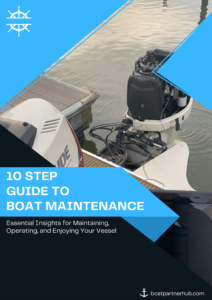Blog
Boating Laws and Regulations: Navigating the Waters Safely and Legally

Navigating the Waters Responsibly: A Comprehensive Guide to Boating Laws and Regulations
Boating is a cherished pastime enjoyed by millions around the world. Whether you’re cruising along serene rivers, exploring vast lakes, or sailing on the open ocean, boating offers a sense of freedom and adventure. However, along with this freedom comes the responsibility to abide by boating laws and regulations. These laws are put in place to ensure the safety of boaters, protect the environment, and promote a harmonious coexistence on the water. In this comprehensive guide, we will delve into various aspects of boating laws and regulations, empowering you to be a knowledgeable and responsible boater.
1. Registration and Licensing
Vessel Registration: Before you set sail, it’s essential to understand the vessel registration requirements in your area. Most jurisdictions mandate that boats be registered with local authorities. During the registration process, you will need to provide ownership and identification details, and you will receive a registration number and decal. Displaying these identifiers on your boat is typically mandatory.
Operator Licensing: To operate a boat legally, you may need a boating license or certificate, depending on your location and the size of your vessel. Many regions require boaters to complete a boating safety course to demonstrate knowledge of navigation rules, safety procedures, and local regulations.
2. Age and Supervision Requirements
Minimum Age: Boating laws specify the minimum age at which individuals can operate a boat without adult supervision. Age requirements can vary based on the horsepower of the boat’s engine, so it’s essential to familiarize yourself with the specific age thresholds in your area.
Supervision of Minors: When boating with children, it’s crucial to be aware of supervision rules. In many regions, minors must be accompanied by an adult while operating a boat. Understanding these requirements ensures the safety of young boaters and their passengers.
3. Speed Limits and Navigation Rules
Speed Limits: Boating speed limits are put in place to protect both boaters and the environment. Speed restrictions may apply in congested areas, near docks, or in zones with sensitive marine ecosystems. Obeying these limits promotes safe boating and minimizes the risk of accidents.
Navigation Rules: To ensure smooth and safe interactions on the water, boaters must adhere to navigation rules. These rules dictate actions such as yielding the right of way, maintaining safe distances from other vessels, and using proper lighting and signals during periods of low visibility.
4. Alcohol and Boating
Boating Under the Influence (BUI): Just like operating a vehicle on land, boating while under the influence of alcohol or drugs is dangerous and against the law. Boating under the influence (BUI) laws are strictly enforced to prevent accidents and protect all waterway users.
Open Container Laws: In some regions, open containers of alcohol are prohibited on boats, regardless of whether the operator is impaired. Complying with open container laws promotes a safe and responsible boating culture.
5. Safety Equipment
Personal Flotation Devices (PFDs): Personal flotation devices, commonly known as life jackets, are crucial safety equipment on any boat. Boating regulations generally require the presence of approved PFDs for all occupants on board. The number and type of PFDs needed depend on the boat’s size and the number of people on board.
Fire Extinguishers: Boats equipped with enclosed cabins or engine compartments must carry Coast Guard-approved fire extinguishers. These portable extinguishers are essential for quickly addressing potential fires on board.
Visual Distress Signals: Boats operating in coastal and open waters must have appropriate visual distress signals, such as flares, to signal for help in emergencies. These signals are essential for attracting attention if you encounter distress situations far from shore.
6. Environmental Protection
Marine Pollution Prevention: As boaters, we have a responsibility to protect the marine environment. Properly disposing of trash, minimizing fuel and oil spills, and avoiding the discharge of pollutants into the water are critical actions to prevent marine pollution.
Wildlife Protection: Respecting marine wildlife is essential for maintaining the delicate balance of ecosystems. Boaters should keep a safe distance from marine mammals and nesting areas to avoid disturbing these vulnerable creatures.
FAQs (Frequently Asked Questions)
Q1: Are there specific speed limits for different waterways?
A: Yes, speed limits can vary depending on the waterway and the region. In general, speed limits are lower in congested areas, near swimming beaches, and within designated no-wake zones.
Q2: Is it necessary to wear a life jacket at all times?
A: While some regions may not require constant wear, it is highly recommended that all boaters wear a life jacket, especially when boating with children or in challenging conditions.
Q3: Can I take a boating safety course online?
A: Yes, many regions offer boating safety courses online, providing flexibility for boaters to complete the course at their convenience.
Q4: How can I report environmental violations on the water?
A: If you witness any environmental violations, such as pollution or wildlife harassment, report the incident to the appropriate environmental agency or Coast Guard unit in your area.
Q5: Are there specific boating laws for sailboats and personal watercraft (PWC)?
A: Yes, different types of vessels may have specific regulations. For example, sailboats and personal watercraft (PWC) may have separate speed limits and safety requirements.
Conclusion
Understanding and adhering to boating laws and regulations are essential for enjoying safe and responsible boating experiences. By familiarizing yourself with local laws, registering your vessel, obtaining the necessary licenses, and following safety guidelines, you can ensure the well-being of everyone on board and preserve the beauty of the marine environment. Responsible boating not only protects you and your passengers but also contributes to a sustainable and enjoyable boating culture for generations to come.


